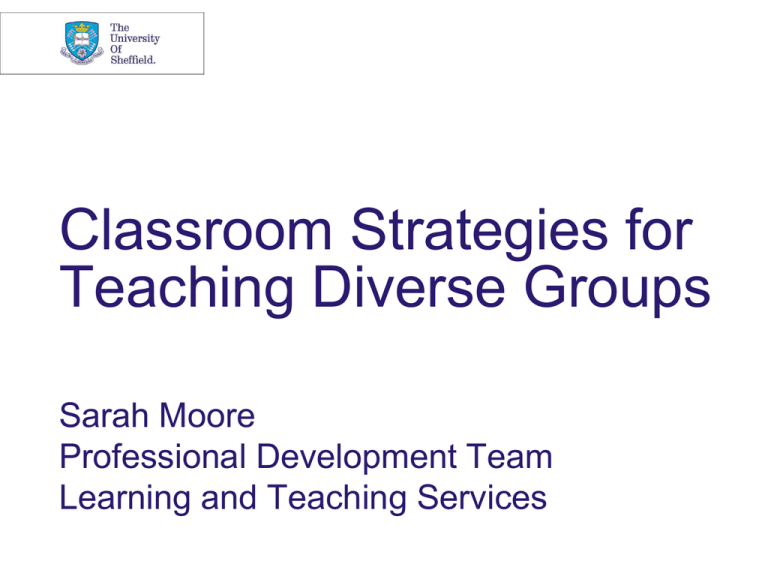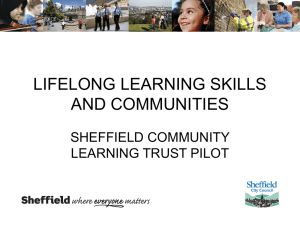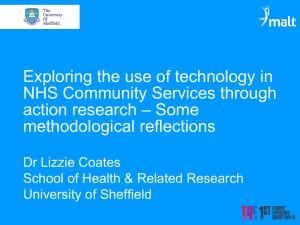Sarah Moore - University of Sheffield
advertisement

Classroom Strategies for Teaching Diverse Groups Sarah Moore Professional Development Team Learning and Teaching Services 2 Learning Outcomes By the end of this session, you will be able to: • explain the theory around different learning styles and how this creates diversity in the classroom • identify key methods/strategies for teaching diverse groups of students • establish how and when you might use some of these strategies with the groups you teach 13/04/2015 © The University of Sheffield 3 Factors influencing learning • Age • Gender • Rest of their student experience • Ethnicity • Learning background • Culture • Demand of the task • Context • Context of learning • Discipline • Learning outcomes • Learning environment • Cues of the learning Wisker G, Exley K, Antoniou M and Ridley P (2008) Working One-To-One With Students (London: Routledge) 13/04/2015 © The University of Sheffield 4 Experiential learning Kolb’s (1984)definition of experiential learning is that it is: •‘the process whereby knowledge is created through the transformation of experience’ Kolb, D. (1984) Experiential Learning: Experience as the source of learning and development. Englewood Cliffs, NJ: Prentice-Hall. 13/04/2015 © The University of Sheffield 5 Experiential learning cycle Concrete Experience Active Experimentation Reflective Observation Abstract Conceptualisation 13/04/2015 © The University of Sheffield Kolb, D. (1984) Experiential Learning: Experience as the source of learning and development. Englewood Cliffs, NJ: Prentice-Hall. 6 Honey and Mumford’s (1986) learning styles Activist Reflector Theorist Pragmatist Honey, P. and Mumford, A. (1986) Using Your Manual of Learning Styles. Maidenhead: Peter Honey Publications 13/04/2015 © The University of Sheffield 7 Strategies for teaching • Name cards/ numbering • Show of hands/ clickers • Muddiest point • ‘Think, pair, share’ • Group monitoring • Online tests • Questions • Lecture flipping • Feedback • Mingle • Workplace tasks 13/04/2015 © The University of Sheffield 8 Think about these strategies: • Which might you use in your teaching to help your students learn? • How might you use them? • What might you have to take into account when using them with your students? 13/04/2015 © The University of Sheffield 9 Things to bear in mind: • Make expectations and language clear • Relate to the workplace • Allow students time to think • Teaching sensitive issues: http://www.sheffield.ac.uk/lets/toolkit/teach ing/sensitive • Cultural trends aren’t the only difference 13/04/2015 © The University of Sheffield 10 Professional Development Team Sarah Moore Nigel Russell Karen Ford profdev@sheffield.ac.uk 13/04/2015 © The University of Sheffield





















